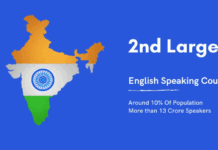The Kashmir conflict is a territorial conflict largely between India and Pakistan over the Kashmir area, with China as a third party. The conflict began after India’s division in 1947, when both India and Pakistan claimed the former princely state of Jammu and Kashmir in its entirety.

It’s a territorial dispute that’s resulted in three wars between India and Pakistan, as well as a slew of previous armed clashes. India owns around 55 percent of the land area in the region, which includes Jammu, the Kashmir Valley, most of Ladakh, the Siachen Glacier, and 70 percent of the people; Pakistan controls about 35 percent of the land area, which includes Azad Kashmir and Gilgit-Baltistan; and China controls about 35 percent of the land area, which includes Tibet.
Read more articles at : https://www.unveil.press/https-www-unveil-press-p4066pubg-ban/
The other 20% of the land area is controlled by China, which comprises the Aksai Chin region, the relatively deserted Trans-Karakoram Tract, and a portion of the Demchok sector. Pakistani tribal militias entered Kashmir after India’s partition and a rebellion in the state’s western parts, forcing the Hindu ruler of Jammu and Kashmir to join India.
The ensuing Indo-Pakistani War ended with a ceasefire mediated by the United Nations along a line that became known as the Line of Control. The Simla Agreement formally established the Line of Control between the two nations’ controlled regions after more fighting in the wars of 1965 and 1971. An armed war between India and Pakistan erupted at Kargil in 1999, but had no effect on the status quo.

Kashmiri protest groups have existed since 1989 to express Kashmir’s conflicts and concerns with the Indian government in the Indian-controlled Kashmir Valley, with some Kashmiri separatists fighting the Indian government in armed combat over the demand for self-determination. The decade of the 2010s saw further turmoil flare in the Kashmir Valley.
An alleged staged encounter between local youth and security forces sparked unrest in Kashmir in 2010. Thousands of young people pelted security troops with rocks, set fire to government buildings, and stormed railway stations and official cars as the violence escalated. Separatists and the Pakistan-based militant organisation Lashkar-e-Taiba were blamed by the Indian government for inciting the 2010 riots
. The assassination of a Hizbul Mujahideen fighter, Burhan Wani, by Indian security forces sparked protests in Kashmir in 2016. The 2019 Pulwama assault sparked more tension in the region. Scholars claim that Indian forces have committed a slew of human rights violations and acts of terror against Kashmiri civilians, including extrajudicial killings, rape, torture, and enforced disappearances.
According to Amnesty International, no member of the Indian military stationed in Jammu and Kashmir has been convicted in a civilian court for human rights crimes as of June 2015, despite military courts-martial being held. The Indian government has also been accused by Amnesty International of refusing to prosecute perpetrators of human rights violations in the region. Violations of human rights have been perpetrated by Indian forces in Kashmir.
Innocent Kashmir citizens being presented as Terrorist
Militants have also committed crimes, and their neutrality has been questioned. State soldiers commit crimes in the Kashmir Valley, which is the site of the current conflict. In a 2010 Chatham House poll of the inhabitants of Indian-administered Jammu & Kashmir, 43 percent expressed worry about human rights violations across the state.
There was a significant percentage of worry about human rights violations in the studied regions of the Muslim-majority Kashmir Valley, where the desire for independence is highest (In Baramulla, 88 percent, in Srinagar, 87 percent, in Anantnag, 73 percent, and in Badgam, 55 percent).
Concerns about human rights violations were minimal in the state’s Hindu and Buddhist majority communities, where pro-India feeling is exceptionally strong (only 3 percent in Jammu expressed concerns over human rights abuses).
Kashmir is more than just a beautiful scenery or a serene tourist spot. It’s a battle ground and the inhabitants have been suffering for decades now. It’s important to be aware of the issue and hold the wrong doers accountable and spread awareness.













































